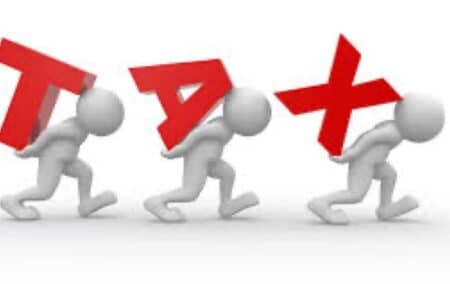In South Africa, we are subjected to a state that provides education, healthcare, and employment for citizens. However, since a state does not generate any funds without those very citizens being taxed first, this has led to high taxation rates for the small segment of the population that is employed.
If you are employed and earn above R95,750 per year, then you are familiar with Personal Income Tax, also known as Pay As You Earn in South Africa. Some people have no philosophical opposition to paying taxes, so the idea of paying tax on your income is considered normal. Problems only arise when the value one is getting for those taxes is not of the quality one would expect.
This brings us to our main point. Even though the determination for personal income tax is inherently arbitrary ̶ violating the rule-of-law principle of equality before the law through the progressiveness of the income tax table ̶ it would still be palatable if the South African state was competent at spending those taxes.
According to research undertaken/conducted by the Institute of Race Relations, South Africa is in the unfortunate position of having an ineffective but expensive government. The size of the government has grown at the 8th fastest rate globally since 1996, while the quality of the government, as measured by the World Bank’s Worldwide Governance Indicators, has shown the 12th worst drop.
The mention of Personal Income Tax is to highlight who bears the brunt of the South African government’s spending escapades. Personal Income Tax is the biggest source of revenue for the state, according to the latest figures from Treasury and the South African Revenue Service.
The state’s debt obligations are growing, the public sector staff contingent is one of the most expensive in the world. South Africa has a public health system, a public education system, funding for tertiary education for some students, and a social security system for orphans, children of the unemployed (theoretically), the unemployed themselves, and pensioners.
The government does not pay for this; it is largely funded by fellow South Africans who are employed.
The employed taxpayer is in an unenviable position. Theoretically, the agreement for paying taxes is that they provide services for everyone in society. We have mentioned the services provided by the South African state, yet, as research has pointed out, the South African state is ineffective at its job. This reality has translated to taxpayers having to fork out more money to pay for those services which their taxes are supposed to cover.
The crime rates in the country are a testament to a failure by the state to deal with security. This has led to an increase in private security firms and personnel, paid for by those who already pay their taxes for the police.
The numerous scandals in the public health system, stemming from mismanagement and not from lack of funding as proponents of the National Health Insurance (NHI) would have us believe, are enough to dissuade anyone who can avoid the system from doing so. Therefore, a taxpayer needs to pay for private medical cover while also having their income taken to fund health provision that is below par and not used by them.
The South African public basic education system is not the best. The literacy and numeracy skills of students in public schools paint a bleak picture of their prospects. This means as a taxpaying parent, you will pay extra to take your child to a private school that produces far better results than public schools do.
Therefore, the South African taxpayer is burdened with an increasing tax bill, with no value in return. South African government services are a mess. The private sector has been the leader of South African society, from security to health and education. Yet if the government was holding up its end of the bargain, this would not be the case.
The personal income tax rate in South Africa should be reduced. This is the biggest source of revenue (35.5%), and yet its reduction is never spoken of in our society. There needs to be a spending cut to address the reduction in revenue, should the personal income tax rate be decreased. I would posit that the spending cut must be accompanied by a reduction in the personal income tax rate to reflect that since the state is spending less, it should be taking less from us as citizens too.
Unfortunately, tax policy is not a critical feature of our politics. Although political parties mention the tax rates in the country, it is hardly for the end of lowering the personal income tax rate or even daring to change the progressive nature of personal income tax to a uniform rate, as we have for companies.
This has led to our current situation, where the South African taxpayer is under siege and there are only a few allies on their side. As we prepare to cast our votes, let us be aware that it is our taxes, as individuals, on our incomes, that make every political party’s ‘dream’ a reality.
The views of the writer are not necessarily the views of the Daily Friend or the IRR.
If you like what you have just read, support the Daily Friend.

